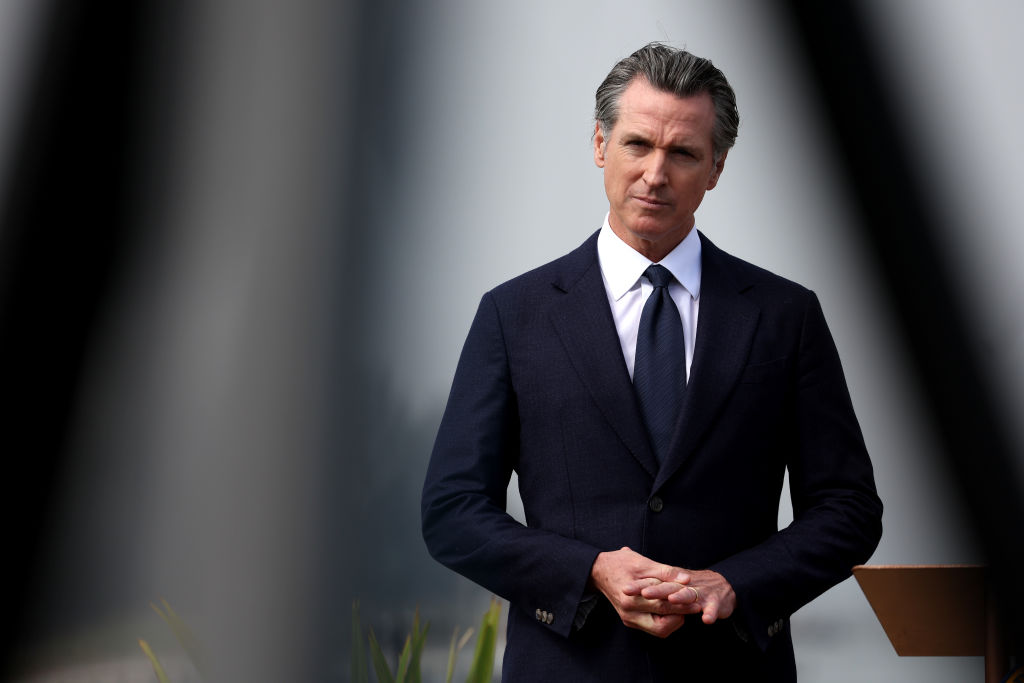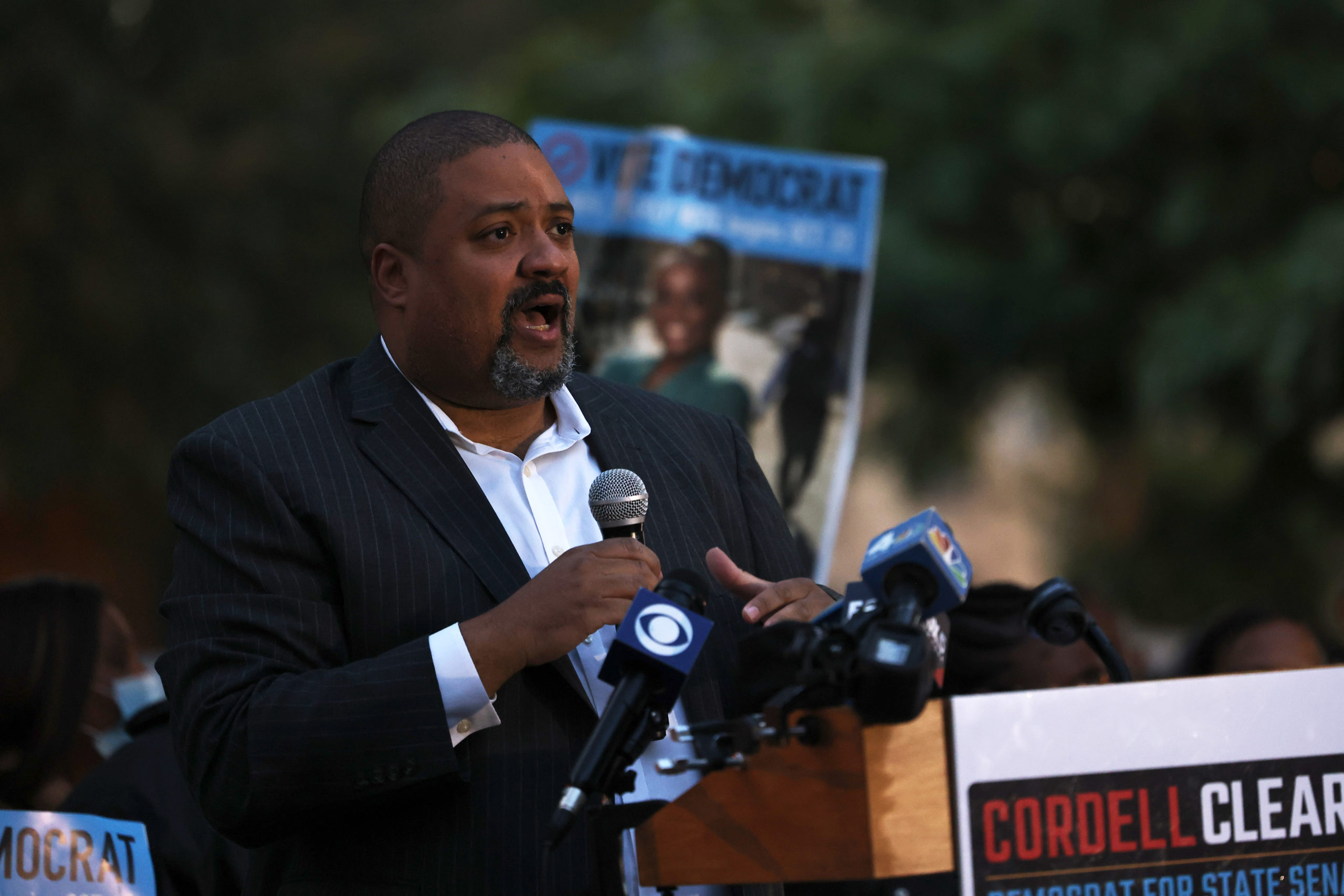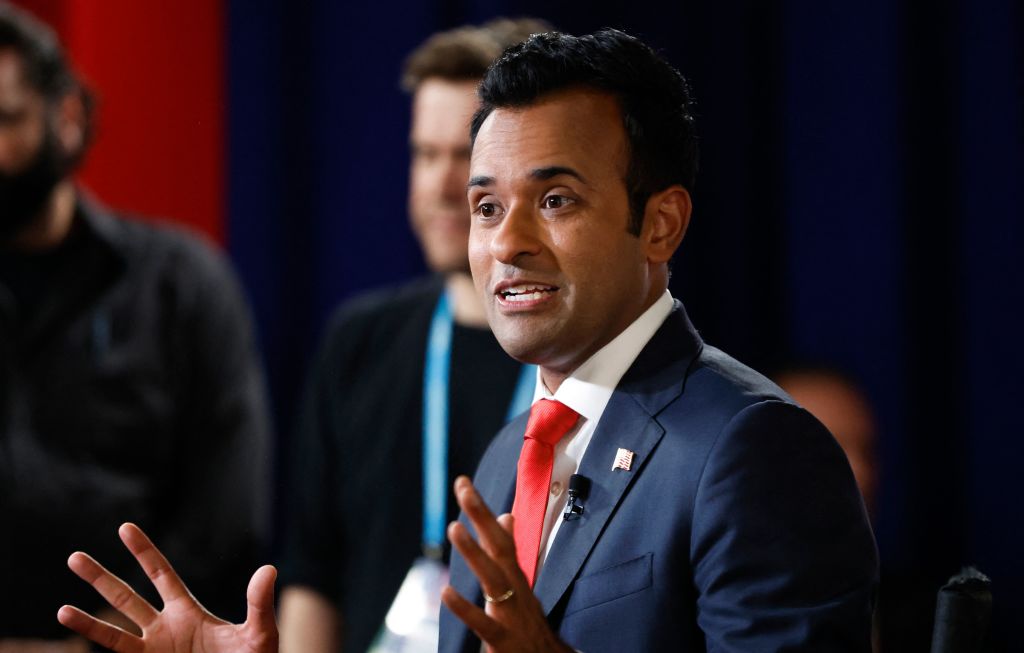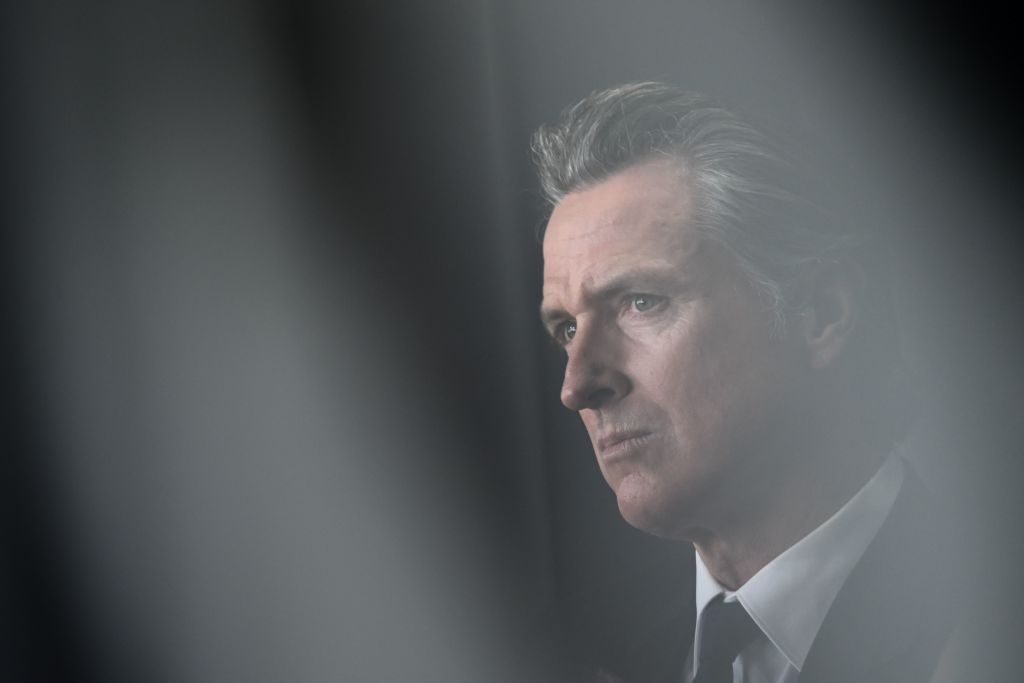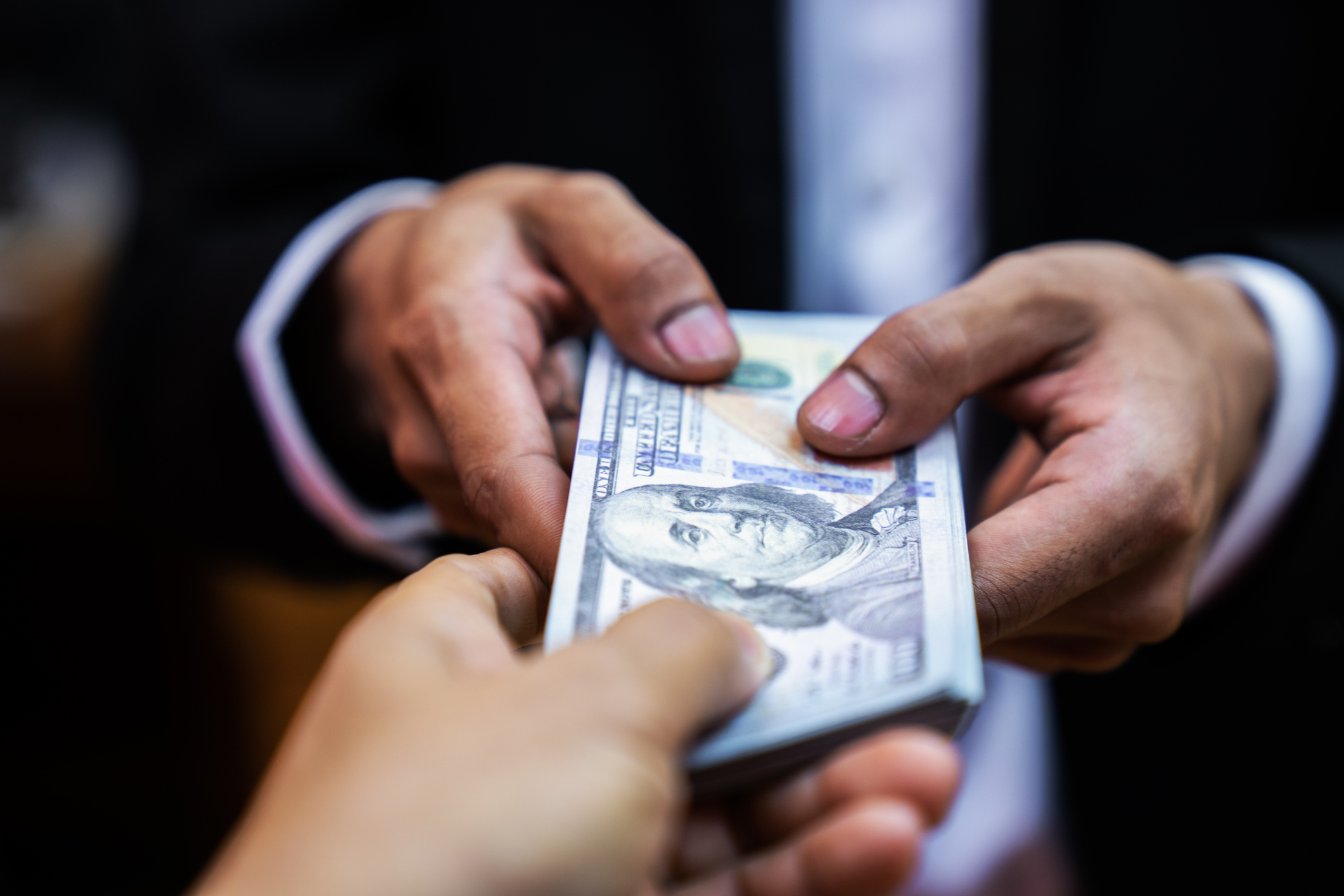Gavin Newsom seems to have been created in the same lab that made his hair gel.
Golden Land
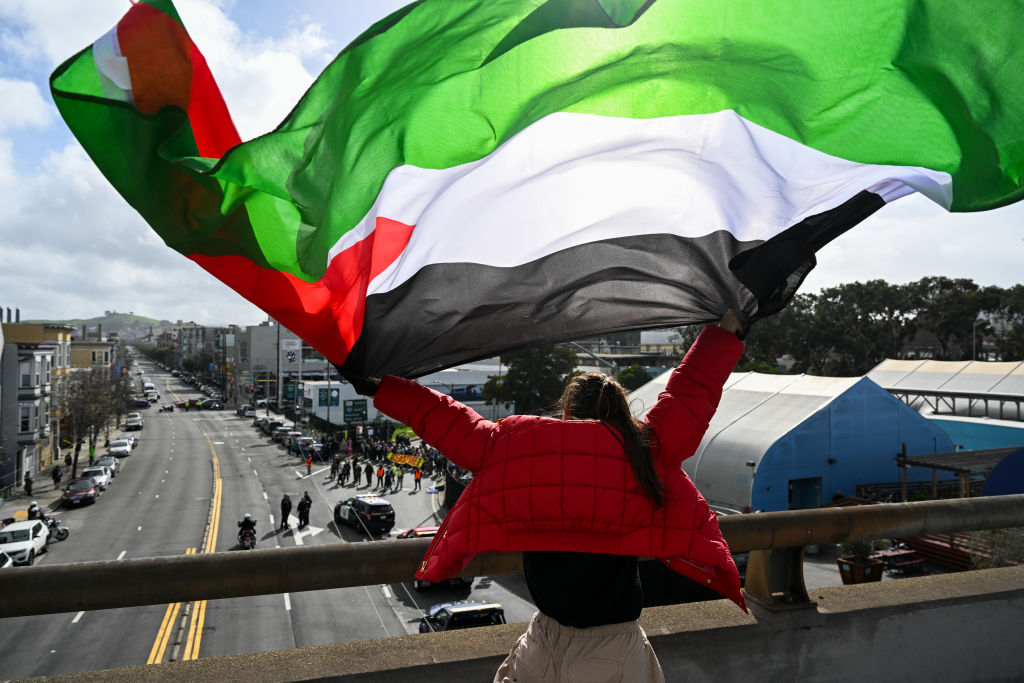
Is California turning on its Jews?
In a way unimaginable in Europe, or even the eastern United States, the Golden State has long been, as one nineteenth century Gentile observer put it, “the Jews’ earthly paradise.” California, settled late and distant from the East Coast, had no entrenched WASP power elite, allowing Jews to achieve economic and political pre-eminence unheard of at that time.
Today, progressive California offers a less appealing landscape. The community that produced Levi Strauss, Hollywood, and numerous Silicon Valley billionaires faces increased hostility—in the political realm, at the universities and schools, on the streets, in literary circles, and even with antisemitic graffiti sprayed on the bathroom walls of coffee houses.
The growing hostility toward Israel and Jews here originates, as elsewhere, from Middle Eastern students, resident Muslims, and university professors. But, increasingly, it has extended to the grassroots level, at city councils and school boards. Almost all this opposition comes not from the Right, the historic base for antisemitism, but almost entirely from the progressive Left.
Anti-Israel sentiment increases in working class cities across California as the issue is tendentiously connected to local concerns. Jews increasingly confront hostility from black and Latino activists eager to exploit a narrative of Zionist domination across continents. It is unsettling to sit at a city council meeting in heavily Latino Santa Ana and see activists, with some success, sell the Palestinian cause as a question of “settler” repression, that also keeps minorities down here.
The council passed a resolution embracing a demand for the release of hostages and an affirmation of Israel’s right to exist, but the very loud, well organized pro-Hamas crowd dominated the event. The atmosphere was so hostile that as I left, members of my synagogue, located in the city, needed to have police help get them safely to their cars.
Why California Matters
For much of the past century, Jews worked closely with racial minorities; it was an alliance between Jews and blacks that elected Tom Bradley as Mayor of Los Angeles in 1973. Most Jews still identify as Democrats. In Los Angeles, the nation’s second largest Jewish city according to the Pat Brown Institute, at most a quarter of the Jewish population tilts to the generally more pro-Israel Republicans.
Jews came to California because it offered less discrimination and more opportunity. Unlike their counterparts in the East and Midwest, Jews were less likely to labor in sweatshops and generally thrived through commerce and the professions. They achieved widespread political influence, serving in the latter half of the nineteenth century as sheriffs, police chiefs, city council members, and county supervisors. Julius Kahn, a Republican, represented San Francisco for over 20 years. When he died, he was replaced by his wife, Florence Prag Kahn, who kept the seat until 1937.
The California experience has been largely ignored in the histories of Jews in America including Arthur Hertzberg’s The Jews in America, Yuri Slezkine’s The Jewish Century, and Norman Lebrecht’s Genius and Anxiety. But California, with 1.2 million Jews, is second only to New York; Los Angeles stands as the world’s third largest Jewish city. Overall, California has as many Jews as France, Britain, and Canada combined.
Jews staked out a powerful presence in California’s two great signature industries, entertainment and technology. Studio chiefs once dominated American culture and were a potent political force greeted with alarm by conspiracists on both Left and Right. But the community’s dominance in Hollywood is clearly fading. Organizations like the Writers Guild, long a bastion of fashionable progressivism, have decided to be neutral on the current war. Some leading figures like Maha Dakhil, co-head of motion pictures at CAA, accused Israel of “genocide” at the Academy Awards. Pro-Palestinian sentiment was common, with a blunt denunciation from Oscar-winning director Jonathan Glazer who, among other things, complained how Israel and its supporters here have “hijacked” the Holocaust to support its atrocities.
To be sure, a handful of influential celebrities, notably Jerry Seinfeld and Steven Spielberg, have expressed solidarity with Israel. Yet as record executive Scooter Braun suggests, most have stayed to the sidelines. Braun, who helped produce Justin Bieber and Arianna Grande, laments that “people with 100 million followers” have chosen not to exercise their influence. “I think every single one of us in our industry knows,” he suggests, “that if this was any other situation, any other country, we’d be losing our minds speaking of how a music festival is not an appropriate place for people to be shot in cold blood.”
Silicon Valley was never as heavily Jewish as Hollywood, but key figures such as Steve Wozniak, co-founder of Apple, Mark Zuckerberg, and Salesforce founder Marc Benioff all have Jewish roots, as do the founders of Google and Oracle. But while Silicon Valley embraced groups like Black Lives Matter with enthusiasm, it has been largely missing in action during the current crisis.
Despite close ties with Israel’s innovation economy, the oligarchs have reasons to keep their distance from Jewish causes, including their great dependence on China, now clearly aligned with Hamas. Dependence on sovereign wealth funds from Qatar and Saudi Arabia may also play a role, notes one Jewish software entrepreneur. Their workforce is also made up three-quarters by non-citizens, many of whom come from Muslim countries as well as from Israel.
More than anything, this indifference, notes longtime Jewish activist and Palo Alto native Nickolas Targ, reflects the total dominance of progressivism throughout the Bay Area. Two decades ago, the Valley sent moderates of both parties to Congress, but increasingly they elect left-leaning Democrats like Bernie Sanders’ former campaign chairman Ro Khanna who, like other progressives, favors a Hamas-favorable ceasefire. “Secular progressivism is part of the air,” Targ notes. “A lot of them are more concerned with their social justice profile than their Judaism.”
Adjusting to New Demographics
Jews have been largely unprepared for the ethnic and economic changes transforming California. The state’s largest ethnic group, Latinos, writes San Francisco State University historian Marc Dollinger, are at “a very different points in their American sojourn.” Jews moved to California during ebullient growth which spawned huge opportunities for upward mobility. In contrast, Latinos face diminishing opportunity and a weaker economy that is trailing the rest of the country in terms of jobs and income and recently has been even losing population.
As we saw in the 1930s, hard times tend to breed antisemitism and class jealousy. In Los Angeles, over 80 percent of Jews are economically comfortable while a majority of Latinos are struggling, according to the United Way. Not surprisingly, many Hispanics, as well as African Americans, according to a Brookings survey, are far more likely to favor the Palestinian cause than whites.
Gloria Romero, one-time Democratic majority leader in the California state senate, notes “there’s never been an alliance with Latinos,” who constitute 40 percent of the population. Some Latinos also feel resentment toward the perceived Jewish power that dominated many parts of Los Angeles long after Latinos constituted a majority. This resentment was nakedly revealed during the recordings of the LA City Council, where then-City Council President Nury Martinez complained bitterly about the power of “judíos.”
These conditions have spawned hostility to Israel and Jews in places like Santa Ana, an almost 80 percent Latino community of 300,000 located in Orange County, south of Los Angeles. Jews have been present in the city for over a century, and many became leading merchants in the town’s historic downtown, notes Dalia Taft, the director of the Orange County Jewish Historical Society, and generally had friendly relations with the overall community.
But poor minority communities like Santa Ana have become promising targets of pro-Hamas organizers. In working class Richmond, the progressive controlled city council in the predominately minority city passed a controversial resolution that accused Israel of “ethnic cleansing” and “apartheid.” Oakland, where minorities account for more than 70 percent of the population, recently passed a resolution for an immediate ceasefire with no mention of Hamas’s atrocities. Some demonstrators even suggested that Israel murdered its own people as a pretext to attack Gaza.
Political Battles Ahead
Given the one-party nature of California, the main battle over Israel and the Jews will take place within the Democratic Party. Even cities with significant Jewish communities like San Francisco and Berkeley have embraced the Hamas position. Pro-Palestinian agitators all but shut down last year’s state Party convention. “Pro-Israel Democrats are horrified by what’s happening,” notes long time L.A. party activist Naomi Goldman. “We are finding that people we thought we shared values with—like Black, LGBTQ, Latino and Asians—no longer align with us.”
With the GOP marginalized, Jewish groups are largely focused on preserving the moderate ring of Democratic Party. They have also battled progressives at the local level, where elections are officially non-partisan. They constituted a critical part of the coalition that elected Republican Richard Riordan as Mayor of Los Angeles in 1993. Last year, failed mayoral candidate Rick Caruso, a former Republican, swept heavily Jewish areas like Pico-Robertson, Beverlywood, Brentwood, and Encino.
Today, long-established Democratic heavyweights like Nancy Pelosi, U.S. Senate candidate Adam Schiff, San Francisco Mayor London Breed, and Governor Gavin Newsom formally back Israel. But Schiff, Breed, and Newsom do not seem willing to make support of Israel a signature issue in the manner of, say, Pennsylvania’s Senator John Fetterman or New York’s Representative Richie Torres.
Adam Schiff may have been something of a fabulist on Russiagate, but by today’s standards he is relatively moderate and strongly pro-Israel. He defeated two relatively more anti-Israel candidates, Barbara Lee and Katie Porter, who together won some 20 percent of the total vote. Porter has called the election “rigged” as “billionaires” funded Schiff, who spent funds to assure that his November opponent would not be one of the progressives but instead the likely loser, 75-year-old former Los Angeles Dodger first baseman Steve Garvey.
Losing California’s Youth
Some, like well-connected Bay Area publicist Sam Lauder, insist well-financed groups like his can hold back the antisemitic trend. But surveys suggest that many younger and minority voters deny the Holocaust and even favor eliminating Israel. Particularly troubling is the influence of social media; according to Pew, one-third of Latino teenagers are “constantly” on largely pro-Hamas TikTok, where pro-Palestinian videos outweigh pro-Israel ones by better than four to one.
These attitudes are further stoked by the education system. Late last month, a group of Jewish students were evacuated from a theater where they came to hear an IDF reservist; they were spit on, manhandled, and their event cancelled. It’s unlikely that those perpetrators will be punished, much less expelled. The University of California, a former epicenter of Jewish achievement, has turned particularly hostile. Irwin Chemerinsky, Berkeley’s Law School dean and a well-known progressive, wrote in the Los Angeles Times that “nothing has prepared me for the antisemitism” rife at Berkeley and other campuses.
Jay Sures, vice chairman at United Talent Agency and a member of the UC Board of Regents, characterized a statement released by the UC Ethnic Studies Faculty Council as being full “falsehoods, inaccuracies, and antisemitic innuendos” and “seeks to legitimize and defend the horrific savagery of the Hamas massacre of October 7.” The Louis D. Brandeis Center for Human Rights Under Law and Jewish Americans for Fairness has filed a lawsuit against the school, alleging “longstanding, unchecked” antisemitism.
When UC’s President Michael Drake suggested more balanced teaching about the Middle East conflict, 150 professors urged him to “rescind” his proposal. At other California campuses like San Francisco State, students were asked by filmmaker Ami Horowitz whether they would support a movement to help Palestine by attacking Jewish schools, synagogues, and other “soft targets.” Most assented, and half offered money.
More worrisome still is what is happening at the grade school level. Steeped in progressive ideology, the state has worked to have rejiggered its math curricula to emphasize “social justice” rather than proficiency. It has also adopted ethnic studies programs, shaped by Critical Race Theory, that are openly anti-Zionist and largely dismiss Jews as white oppressors.
Like the children of Gaza, California’s youth, primarily minorities, are being schooled in a worldview that casts history in essentially racial terms, with Latinos and black people seen as permanent victims, like the Palestinians, as well as those living in low-income, non-European countries.
In San Francisco there have been anti-Israel walkouts in ten high schools, organized by an advocacy group with access to student addresses. Some teachers are allowed to use materials that condemn Israeli “terrorism” as “worse than Hamas.” An Oakland teacher held an unauthorized teach-in, and suggested materials included a coloring book for elementary students with a Palestinian character who says, “A group of bullies called Zionists wanted our land so they stole it by force and hurt many people.”
The Future of Paradise
There are signs that October 7 has finally roused some California Jews from their progressive slumbers. Some progressive intellectuals like Rob Eshman, senior columnist at The Forward and former publisher and editor in chief of the Jewish Journal of Los Angeles, believe liberal Judaism can survive the current climate. California Jews, he adds, have faced antisemitism before, both in the early parts of the twentieth century and again in the 1930s.
But even Eshman admits that Jews will need to rely more on themselves. Recent pro-Hamas demonstrations have forced at least one Los Angeles synagogue to relocate its services, while demonstrators halted traffic in the traditionally Jewish Fairfax district.
The home of AIPAC President Steve Tuchin was recently attacked with smoke bombs and red paint, while Jewish businesses have been vandalized in San Francisco as well as Canoga Park and Woodland Hills in the heavily Jewish San Fernando Valley. Not surprisingly, gun sales are way up in Jewish neighborhoods like Studio City and Beverly Hills. Orthodox communities like L.A.’s Pico-Robertson have created their own de facto police and emergency service known as Hatzolah; some of the volunteers come from the ranks of the U.S. military as well as the Israel Defense Forces.
These efforts suggest a sea change in Jewish attitudes that could shake up California politics in future decades. For most Jews, it may boil down to a choice between being Jewish and identifying as a progressive. Most may not become Trumpistas, but they are discovering that their friends tend to be more conservative and religious than fashionably “enlightened.” As Jews have learned through history, you take your allies where you find them.
The American Mind presents a range of perspectives. Views are writers’ own and do not necessarily represent those of The Claremont Institute.
The American Mind is a publication of the Claremont Institute, a non-profit 501(c)(3) organization, dedicated to restoring the principles of the American Founding to their rightful, preeminent authority in our national life. Interested in supporting our work? Gifts to the Claremont Institute are tax-deductible.
The presidential candidate stands against the Left's attacks on the ties that bind.
The neo-feudal Newsom model has been a disaster.
The California Reparations Task Force is trying its best to skirt a landmark Supreme Court ruling.

